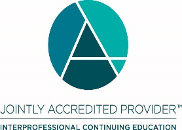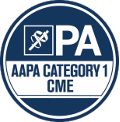Applying the Science of Toxic Stress to Support Children’s Health
This ACEs Aware webinar discusses the physiology of toxic stress and how to apply the science of Adverse Childhood Experiences (ACEs) and toxic stress in pediatric care.
After completing this webinar, the participant should be better able to:
- Describe the physiology of toxic stress and the biological changes that may be a pathway to clinical progression of chronic illness related to exposure to ACEs and toxic stress.
- Apply the physiology of toxic stress from the perspective of medical providers to directly address and treat ACE-Associated Health Conditions, such as asthma, in children.
- Use ACE screening and evidence-based interventions as part of their clinical practice to better care for their patients.
Faculty
- Rachel Gilgoff, MD – ACEs Aware Clinical Advisor, Child Abuse Pediatrician, Fellow – Pediatric Integrative Medicine, Stanford University Medicine
- Neeta Thakur, MD, MPH – Assistant Professor, University of California, San Francisco School of Medicine
- R.J. Gillespie, MD, MHPE – The Children’s Clinic, Portland
Target Audience
This activity is intended for physicians, physician assistants, registered nurses, psychologists, social workers and other healthcare providers engaged in the screening of patients with toxic stress related to Adverse Childhood Experiences.
Launch Date
February 24, 2021
Expiration Date
February 24, 2022
Jointly provided by Postgraduate Institute for Medicine, Office of the California Surgeon General, California Department of Health Care Services, and Aurrera Health Group
Joint Accreditation Statement

In support of improving patient care, this activity has been planned and implemented by the Postgraduate Institute for Medicine, Office of the California Surgeon General, California Department of Health Care Services, and Aurrera Health Group. Postgraduate Institute for Medicine is jointly accredited by the Accreditation Council for Continuing Medical Education (ACCME), the Accreditation Council for Pharmacy Education (ACPE), and the American Nurses Credentialing Center (ANCC) to provide continuing education for the healthcare team.
Physician Continuing Medical Education
The Postgraduate Institute for Medicine designates this enduring material for a maximum of 1.0 AMA PRA Category 1 Credit(s)™. Physicians should claim only the credit commensurate with the extent of their participation in the activity.
Continuing Nursing Education
The maximum number of hours awarded for this Continuing Nursing Education activity is 1.0 contact hours.
California Board of Registered Nursing
Provider approved by the California Board of Registered Nursing, Provider Number 13485, for 1.0 contact hours.
Continuing Psychologist Education
Continuing Education (CE) credits for psychologists are provided through the co-sponsorship of the American Psychological Association (APA) Office of Continuing Education in Psychology (CEP). The APA CEP Office maintains responsibility for the content of the programs.
Credit Designation
This program offers 1.0 continuing education credits for psychologists.
Continuing Physician Assistant Education

Postgraduate Institute for Medicine has been authorized by the American Academy of PAs (AAPA) to award AAPA Category 1 CME credit for activities planned in accordance with AAPA CME Criteria. This activity is designated for 1.0 AAPA Category 1 CME credits. Approval is valid until October 28, 2021. PAs should only claim credit commensurate with the extent of their participation.
Continuing Social Work Education

As a Jointly Accredited Organization, Postgraduate Institute for Medicine is approved to offer social work continuing education by the Association of Social Work Boards (ASWB) Approved Continuing Education (ACE) program. Organizations, not individual courses, are approved under this program. State and provincial regulatory boards have the final authority to determine whether an individual course may be accepted for continuing education credit. Postgraduate Institute for Medicine maintain responsibility for this course. Social workers completing this course receive 1.0 Clinical continuing education credits.
ABIM MOC Continuing Education
Successful completion of this CME activity, which includes participation in the evaluation component, enables the participant to earn up to 1.0 MOC points in the American Board of Internal Medicine’s (ABIM) maintenance of certification (MOC) program. Participants will earn MOC points equivalent to the amount of CME credits claimed for the activity. It is the CME activity provider’s responsibility to submit participant completion information to ACCME for the purpose of granting ABIM MOC credit.
ABP MOC Continuing Education
Successful completion of this CME activity, which includes participation in the activity and individual assessment of and feedback to the learner, enables the learner to earn up to 1.0 MOC points in the American Board of Pediatrics’ (ABP) Maintenance of Certification (MOC) program. It is the CME activity provider’s responsibility to submit learner completion information to ACCME for the purpose of granting ABP MOC credit.
Disclosure of Conflicts of Interest
Postgraduate Institute for Medicine (PIM) requires instructors, planners, managers, and other individuals who are in a position to control the content of this activity to disclose any real or apparent conflict of interest (COI) they may have as related to the content of this activity. All identified COI are thoroughly vetted and resolved according to PIM policy. PIM is committed to providing its learners with high quality activities and related materials that promote improvements or quality in healthcare and not a specific proprietary business interest of a commercial interest.
Fee Information
There is no fee for this educational activity.